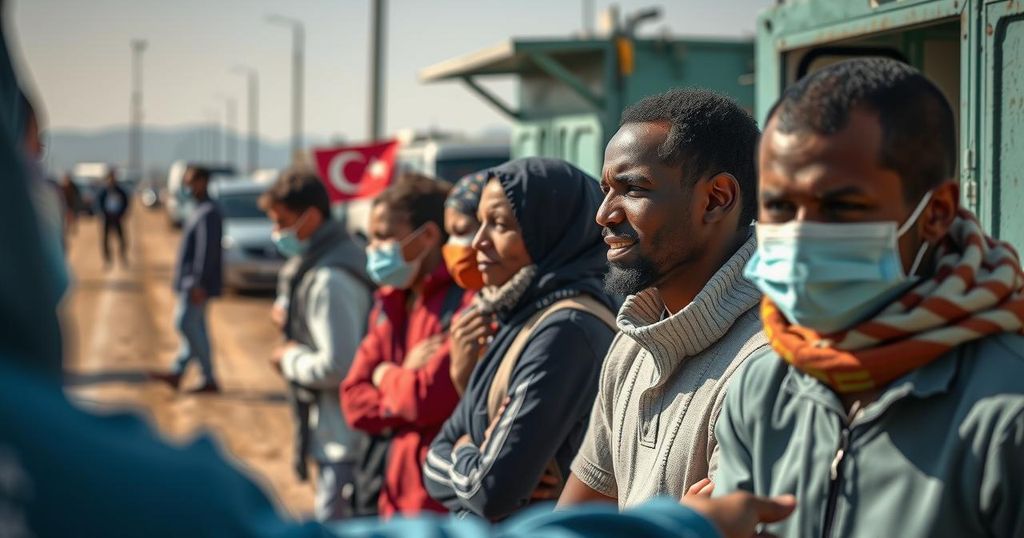UN Report Exposes Turkey’s Forced Deportation of Eritrean Migrants

A UN report reveals that Turkey has forcibly deported nearly 300 Eritreans, risking violations of their human rights. The UN warns of possible torture and forced labor upon their return to Eritrea and condemns the conditions at Aydın Repatriation Center, urging Turkey to cease deportations immediately and improve migrant treatment.
The government of Turkey, led by President Recep Tayyip Erdogan, faces intense criticism after the United Nations reported the forcible deportation of nearly 300 Eritrean migrants. These deportations expose individuals to severe human rights abuses. The United Nations Special Rapporteurs have raised significant concerns regarding the alleged arbitrary detention and imminent risk of deportation of an additional group of about 50 Eritreans. The UN emphasized that Turkey’s actions contravene key principles of human rights and refugee law, stipulating that no one should be returned to a country where they risk persecution or torture.
International law, including the Convention Against Torture ratified by Turkey in 1988, prohibits such deportations whereby individuals are sent to countries where they are at risk of suffering torture or other gross human rights violations. The rapporteurs indicated a high likelihood of torture and degrading treatment for returnees in Eritrea, where individuals risk detention or forced conscription into military service. Such an indefinite conscription may lead to forced labor and further abuses.
Upon returning to Eritrea, deportees reportedly encounter severe human rights violations, including torture and enforced disappearances. The UN also highlighted troubling conditions in Turkey’s Aydın Repatriation Center, where 50 Eritrean migrants are currently detained. Detainees have reported instances of violence from guards, extreme heat conditions, denial of medical care, and a lack of access to legal representation and family contact.
The United Nations experts have urged the Turkish government to cease all deportations to Eritrea, improve the living conditions for detainees, and ensure thorough assessments of asylum claims. As of now, Turkey has not publicly responded to these concerns. The letter calling for immediate intervention was signed by three UN special rapporteurs: Mohamed Abdelsalam Babiker, Gabriella Citroni, and Gehad Madi.
This situation highlights the ongoing challenges facing migrants in Turkey, particularly those originating from Eritrea, a country known for its oppressive regime and human rights violations. The UN’s intervention underscores international commitments to protect individuals from being returned to places where they face torture or persecution. The legal framework surrounding deportations stresses the responsibilities of nations in safeguarding refugees, particularly those fleeing from nations with a history of human rights abuses. Turkey’s role as a transit country for many migrants seeking refuge further complicates local and international responses to such humanitarian crises.
The forcible deportation of Eritrean migrants from Turkey raises serious concerns regarding human rights violations and the adherence to international refugee laws. The allegations of mistreatment and poor conditions in detention centers accentuate the urgent need for systemic changes within Turkey’s migration policies. The international community must hold Turkey accountable to ensure that the rights of vulnerable populations are protected and respected. Prompt intervention and reassessment of asylum practices are crucial to avert further violations.
Original Source: www.garoweonline.com








